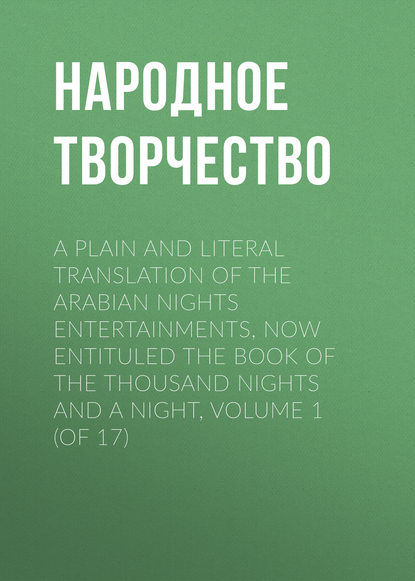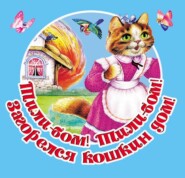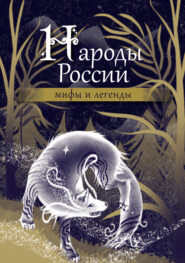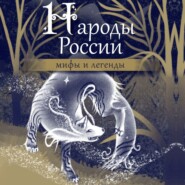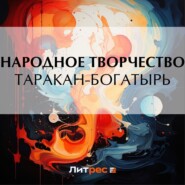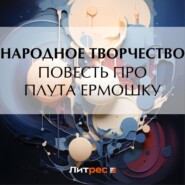По всем вопросам обращайтесь на: info@litportal.ru
(©) 2003-2024.
✖
A plain and literal translation of the Arabian nights entertainments, now entituled The Book of the Thousand Nights and a Night, Volume 1 (of 17)
Настройки чтения
Размер шрифта
Высота строк
Поля
The Bresl. Edit. absurdly has Jazírah (an island).
96
The Ghúlah (fem. of Ghúl) is the Heb. Lilith or Lilis; the classical Lamia; the Hindu Yogini and Dakini; the Chaldean Utug and Gigim (desert-demons) as opposed to the Mas (hill-demon) and Telal (who steal into towns); the Ogress of our tales and the Bala yaga (Granny-witch) of Russian folk-lore. Etymologically "Ghul" is a calamity, a panic fear; and the monster is evidently the embodied horror of the grave and the grave-yard.
97
Arab. "Shább" (Lat. juvenis) between puberty and forty or according to some fifty; when the patient becomes a "Rajul ikhtiyár" (man of free will) politely termed, and then a Shaykh or Shaybah (grey-beard, oldster).
98
Some proverbial name now forgotten. Torrens (p. 48) translates it "the giglot" (Fortune?) but "cannot discover the drift."
99
Arab. "Ihtizáz," that natural and instinctive movement caused by good news suddenly given, etc.
100
Arab "Kohl," in India, Surmah, not a "collyrium," but powdered antimony for the eyelids. That sold in the bazars is not the real grey ore of antimony but a galena or sulphuret of lead. Its use arose as follows. When Allah showed Himself to Moses on Sinai through an opening the size of a needle, the Prophet fainted and the Mount took fire: thereupon Allah said, "Henceforth shalt thou and thy seed grind the earth of this mountain and apply it to your eyes!" The powder is kept in an étui called Makhalah and applied with a thick blunt needle to the inside of the eyelid, drawing it along the rim; hence etui and probe denote the sexual rem in re and in cases of adultery the question will be asked, "Didst thou see the needle in the Kohl-pot?" Women mostly use a preparation of soot or lamp-black (Hind. Kajala, Kajjal) whose colour is easily distinguished from that of Kohl. The latter word, with the article (Al-Kohl) is the origin of our "alcohol;" though even M. Littré fails to show how "fine powder" became "spirits of wine." I found this powder (wherewith Jezebel "painted" her eyes) a great preservative from ophthalmia in desert-travelling: the use in India was universal, but now European example is gradually abolishing it.
101
The tale of these two women is now forgotten.
102
Arab. "Atadakhkhal". When danger threatens it is customary to seize a man's skirt and cry "Dakhíl-ak!" (=under thy protection). Among noble tribes the Badawi thus invoked will defend the stranger with his life. Foreigners have brought themselves into contempt by thus applying to women or to mere youths.
103
The formula of quoting from the Koran.
104
Lit. "Allah not desolate me" (by thine absence). This is still a popular phrase – Lá tawáhishná=Do not make me desolate, i. e. by staying away too long; and friends meeting after a term of days exclaim "Auhashtani!"=thou hast made me desolate, Je suis désolé.
105
Charming simplicity of manners when the Prime Minister carries the fish (shade of Vattel!) to the cookmaid. The "Gesta Romanorum" is nowhere more naive.
106
Arab. "Kahílat al-taraf"=lit. eyelids lined with Kohl; and figuratively "with black lashes and languorous look." This is a phrase which frequently occurs in The Nights and which, as will appear, applies to the "lower animals" as well as to men. Moslems In Central Africa apply Kohl not to the thickness of the eyelid but upon both outer lids, fixing it with some greasy substance. The peculiar Egyptian (and Syrian) eye with its thick fringes of jet-black lashes, looking like lines of black drawn with soot, easily suggests the simile. In England I have seen the same appearance amongst miners fresh from the colliery.
107
Of course applying to her own case.
108
Prehistoric Arabs who measured from 60 to 100 cubits high: Koran, chapt. xxvi., etc. They will often be mentioned in The Nights.
109
Arab. "Dastúr" (from Persian)=leave, permission. The word has two meanings (see Burckhardt, Arab. Prov. No. 609) and is much used, e. g. before walking up stairs or entering a room where strange women might be met. So "Tarík"=Clear the way (Pilgrimage, iii., 319). The old Persian occupation of Egypt, not to speak of the Persian-speaking Circassians and other rulers has left many such traces in popular language. One of them is that horror of travellers – "Bakhshísh" pron. bakh-sheesh and shortened to shísh from the Pers. "baksheesh." Our "Christmas box" has been most unnecessarily derived from the same, despite our reading: —
Gladly the boy, with Christmas box in hand.
And, as will be seen, Persians have bequeathed to the outer world worse things than bad language, e. g. heresy and sodomy.
110
He speaks of his wife, but euphemistically in the masculine.
111
A popular saying throughout Al-Islam.
112
Arab. "Fata": lit=a youth; a generous man, one of noble mind (as youth-tide should be). It corresponds with the Lat. "vir," and has much the meaning of the Ital. "Giovane," the Germ. "Junker" and our "gentleman."
113
From the Bul. Edit.
114
The vagueness of his statement is euphemistic.
115
This readiness of shedding tears contrasts strongly with the external stoicism of modern civilization; but it is true to Arab character; and Easterns, like the heroes of Homer and Italians of Boccaccio, are not ashamed of what we look upon as the result of feminine hysteria – "a good cry."
116
The formula (constantly used by Moslems) here denotes displeasure, doubt how to act and so forth. Pronounce, "Lá haula wa lá kuwwata illá bi 'lláhi 'l-Aliyyi 'l-Azim." As a rule mistakes are marvellous: Mandeville (chapt. xii.) for "Lá iláha illa 'lláhu wa Muhammadun Rasúlu 'llah" writes "La ellec sila, Machomete rores alla." The former (lá haula, etc.), on account of the four peculiar Arabic letters, is everywhere pronounced differently; and the exclamation is called "Haulak" or "Haukal."
117
An Arab holds that he has a right to marry his first cousin, the daughter of his father's brother, and if any win her from him a death and a blood-feud may result. It was the same in a modified form amongst the Jews and in both races the consanguineous marriage was not attended by the evil results (idiotcy, congenital deafness, etc.) observed in mixed races like the English and the Anglo-American. When a Badawi speaks of "the daughter of my uncle" he means wife; and the former is the dearer title, as a wife can be divorced, but blood is thicker than water.
118
Arab. "Kahbah;" the coarsest possible term. Hence the unhappy "Cava" of Don Roderick the Goth, which simply means The Whore.
119
96
The Ghúlah (fem. of Ghúl) is the Heb. Lilith or Lilis; the classical Lamia; the Hindu Yogini and Dakini; the Chaldean Utug and Gigim (desert-demons) as opposed to the Mas (hill-demon) and Telal (who steal into towns); the Ogress of our tales and the Bala yaga (Granny-witch) of Russian folk-lore. Etymologically "Ghul" is a calamity, a panic fear; and the monster is evidently the embodied horror of the grave and the grave-yard.
97
Arab. "Shább" (Lat. juvenis) between puberty and forty or according to some fifty; when the patient becomes a "Rajul ikhtiyár" (man of free will) politely termed, and then a Shaykh or Shaybah (grey-beard, oldster).
98
Some proverbial name now forgotten. Torrens (p. 48) translates it "the giglot" (Fortune?) but "cannot discover the drift."
99
Arab. "Ihtizáz," that natural and instinctive movement caused by good news suddenly given, etc.
100
Arab "Kohl," in India, Surmah, not a "collyrium," but powdered antimony for the eyelids. That sold in the bazars is not the real grey ore of antimony but a galena or sulphuret of lead. Its use arose as follows. When Allah showed Himself to Moses on Sinai through an opening the size of a needle, the Prophet fainted and the Mount took fire: thereupon Allah said, "Henceforth shalt thou and thy seed grind the earth of this mountain and apply it to your eyes!" The powder is kept in an étui called Makhalah and applied with a thick blunt needle to the inside of the eyelid, drawing it along the rim; hence etui and probe denote the sexual rem in re and in cases of adultery the question will be asked, "Didst thou see the needle in the Kohl-pot?" Women mostly use a preparation of soot or lamp-black (Hind. Kajala, Kajjal) whose colour is easily distinguished from that of Kohl. The latter word, with the article (Al-Kohl) is the origin of our "alcohol;" though even M. Littré fails to show how "fine powder" became "spirits of wine." I found this powder (wherewith Jezebel "painted" her eyes) a great preservative from ophthalmia in desert-travelling: the use in India was universal, but now European example is gradually abolishing it.
101
The tale of these two women is now forgotten.
102
Arab. "Atadakhkhal". When danger threatens it is customary to seize a man's skirt and cry "Dakhíl-ak!" (=under thy protection). Among noble tribes the Badawi thus invoked will defend the stranger with his life. Foreigners have brought themselves into contempt by thus applying to women or to mere youths.
103
The formula of quoting from the Koran.
104
Lit. "Allah not desolate me" (by thine absence). This is still a popular phrase – Lá tawáhishná=Do not make me desolate, i. e. by staying away too long; and friends meeting after a term of days exclaim "Auhashtani!"=thou hast made me desolate, Je suis désolé.
105
Charming simplicity of manners when the Prime Minister carries the fish (shade of Vattel!) to the cookmaid. The "Gesta Romanorum" is nowhere more naive.
106
Arab. "Kahílat al-taraf"=lit. eyelids lined with Kohl; and figuratively "with black lashes and languorous look." This is a phrase which frequently occurs in The Nights and which, as will appear, applies to the "lower animals" as well as to men. Moslems In Central Africa apply Kohl not to the thickness of the eyelid but upon both outer lids, fixing it with some greasy substance. The peculiar Egyptian (and Syrian) eye with its thick fringes of jet-black lashes, looking like lines of black drawn with soot, easily suggests the simile. In England I have seen the same appearance amongst miners fresh from the colliery.
107
Of course applying to her own case.
108
Prehistoric Arabs who measured from 60 to 100 cubits high: Koran, chapt. xxvi., etc. They will often be mentioned in The Nights.
109
Arab. "Dastúr" (from Persian)=leave, permission. The word has two meanings (see Burckhardt, Arab. Prov. No. 609) and is much used, e. g. before walking up stairs or entering a room where strange women might be met. So "Tarík"=Clear the way (Pilgrimage, iii., 319). The old Persian occupation of Egypt, not to speak of the Persian-speaking Circassians and other rulers has left many such traces in popular language. One of them is that horror of travellers – "Bakhshísh" pron. bakh-sheesh and shortened to shísh from the Pers. "baksheesh." Our "Christmas box" has been most unnecessarily derived from the same, despite our reading: —
Gladly the boy, with Christmas box in hand.
And, as will be seen, Persians have bequeathed to the outer world worse things than bad language, e. g. heresy and sodomy.
110
He speaks of his wife, but euphemistically in the masculine.
111
A popular saying throughout Al-Islam.
112
Arab. "Fata": lit=a youth; a generous man, one of noble mind (as youth-tide should be). It corresponds with the Lat. "vir," and has much the meaning of the Ital. "Giovane," the Germ. "Junker" and our "gentleman."
113
From the Bul. Edit.
114
The vagueness of his statement is euphemistic.
115
This readiness of shedding tears contrasts strongly with the external stoicism of modern civilization; but it is true to Arab character; and Easterns, like the heroes of Homer and Italians of Boccaccio, are not ashamed of what we look upon as the result of feminine hysteria – "a good cry."
116
The formula (constantly used by Moslems) here denotes displeasure, doubt how to act and so forth. Pronounce, "Lá haula wa lá kuwwata illá bi 'lláhi 'l-Aliyyi 'l-Azim." As a rule mistakes are marvellous: Mandeville (chapt. xii.) for "Lá iláha illa 'lláhu wa Muhammadun Rasúlu 'llah" writes "La ellec sila, Machomete rores alla." The former (lá haula, etc.), on account of the four peculiar Arabic letters, is everywhere pronounced differently; and the exclamation is called "Haulak" or "Haukal."
117
An Arab holds that he has a right to marry his first cousin, the daughter of his father's brother, and if any win her from him a death and a blood-feud may result. It was the same in a modified form amongst the Jews and in both races the consanguineous marriage was not attended by the evil results (idiotcy, congenital deafness, etc.) observed in mixed races like the English and the Anglo-American. When a Badawi speaks of "the daughter of my uncle" he means wife; and the former is the dearer title, as a wife can be divorced, but blood is thicker than water.
118
Arab. "Kahbah;" the coarsest possible term. Hence the unhappy "Cava" of Don Roderick the Goth, which simply means The Whore.
119





